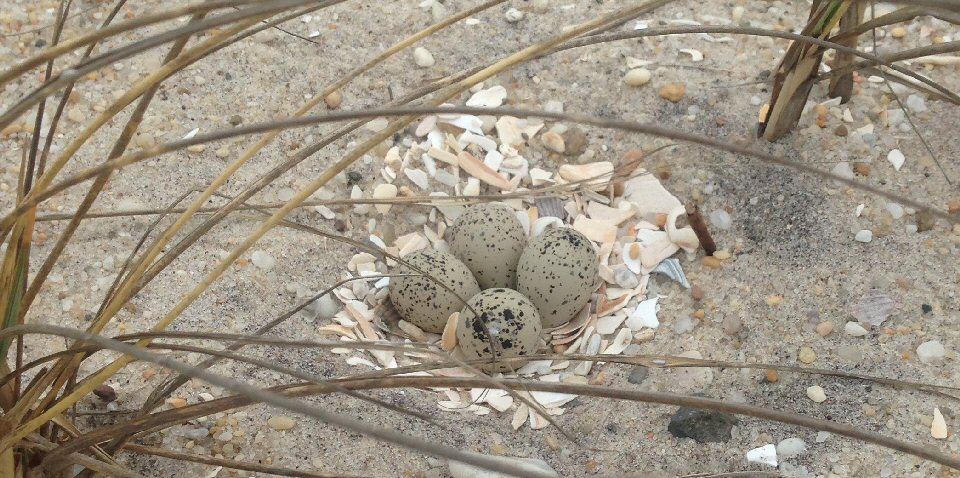Closed Section of Gordons Pond Beach Reopens after Plover Nest Fails


A section of the beach at Gordon’s Pond at Cape Henlopen State Park has been reopened to beachgoers and surf fishermen after a piping plover nest found there has failed. The area was closed off in late June to protect the endangered plovers, but was reopened on Friday. DNREC officials believe red fox claimed one of the adult plovers and all three of the chicks that hatched last month. The nest was protected by an exclosure that DNREC biologists erected around it – but all were vulnerable when they left the nest to feed.
Additional information from DNREC:
DNREC staff from the Divisions of Fish and Wildlife and Parks and Recreation removed 800 feet of fencing Friday that had cordoned off the area around the nest to public encroachment. Though the first such closure for protection of piping plovers at Gordons Pond in seven years, the species has nested there on a number of occasions since its ESA listing in 1986. The protective fencing had extended to the high water mark on a portion of Cape Henlopen’s ocean beach while symbolic fencing – cautionary signage on fence posts tied off by twine – also was removed from the area as it reopened Friday to beachgoers and anglers.
Another stretch of beach at Cape Henlopen, The Point, is currently closed through Sept. 1 (Oct. 1 for The Point’s bayside beach), as it has been annually since 1993 for the benefit of threatened and endangered beach-nesting and migratory shorebird species to include red knots, piping plovers, American oystercatchers and least terns. The DNREC Divisions of Parks and Recreation, Fish and Wildlife, and Watershed Stewardship have worked together since 1990 on a management plan to help grow shorebird populations in Delaware – with U.S. Fish and Wildlife Service oversight for protective measures on the shorebirds’ behalf.

